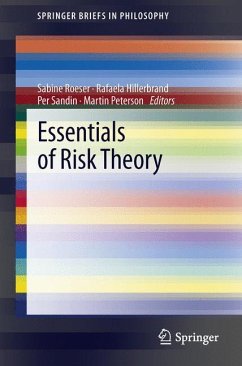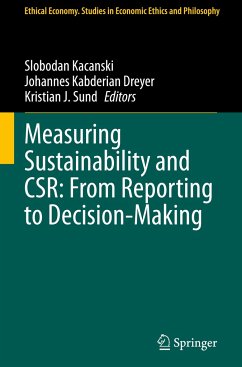
Risk Theory
Rational Decision in the Face of Chance, Uncertainty, and Risk

PAYBACK Punkte
27 °P sammeln!
Apart from its foray into technical issues of risk assessment and management, this book has one principal aim. With situations of chancy outcomes certain key factors-including outcome possibilities, overall expectation, threat, and even luck-are measurable parameters. But risk is something different: it is not measurable a single parametric quantity, but a many-sided factor that has several different components, and constitutes a complex phenomenon that must be assessed judgmentally in a highly contextualized way. This book explains and analyzes how this works out in practice.Topics in this wo...
Apart from its foray into technical issues of risk assessment and management, this book has one principal aim. With situations of chancy outcomes certain key factors-including outcome possibilities, overall expectation, threat, and even luck-are measurable parameters. But risk is something different: it is not measurable a single parametric quantity, but a many-sided factor that has several different components, and constitutes a complex phenomenon that must be assessed judgmentally in a highly contextualized way. This book explains and analyzes how this works out in practice.
Topics in this work include choice and risk, chance and likelihood, as well as outcome-yield evaluation and risk. It takes into account abnormal situations and eccentric measurements, situational evaluation and expectation and scrutinizes the social aspect of risk. The book is of interest to logicians, philosophers of mathematics, and researchers of risk assessment. The project is a companion piece to the author's LUCK THEORY, also published by Springer.
Topics in this work include choice and risk, chance and likelihood, as well as outcome-yield evaluation and risk. It takes into account abnormal situations and eccentric measurements, situational evaluation and expectation and scrutinizes the social aspect of risk. The book is of interest to logicians, philosophers of mathematics, and researchers of risk assessment. The project is a companion piece to the author's LUCK THEORY, also published by Springer.














